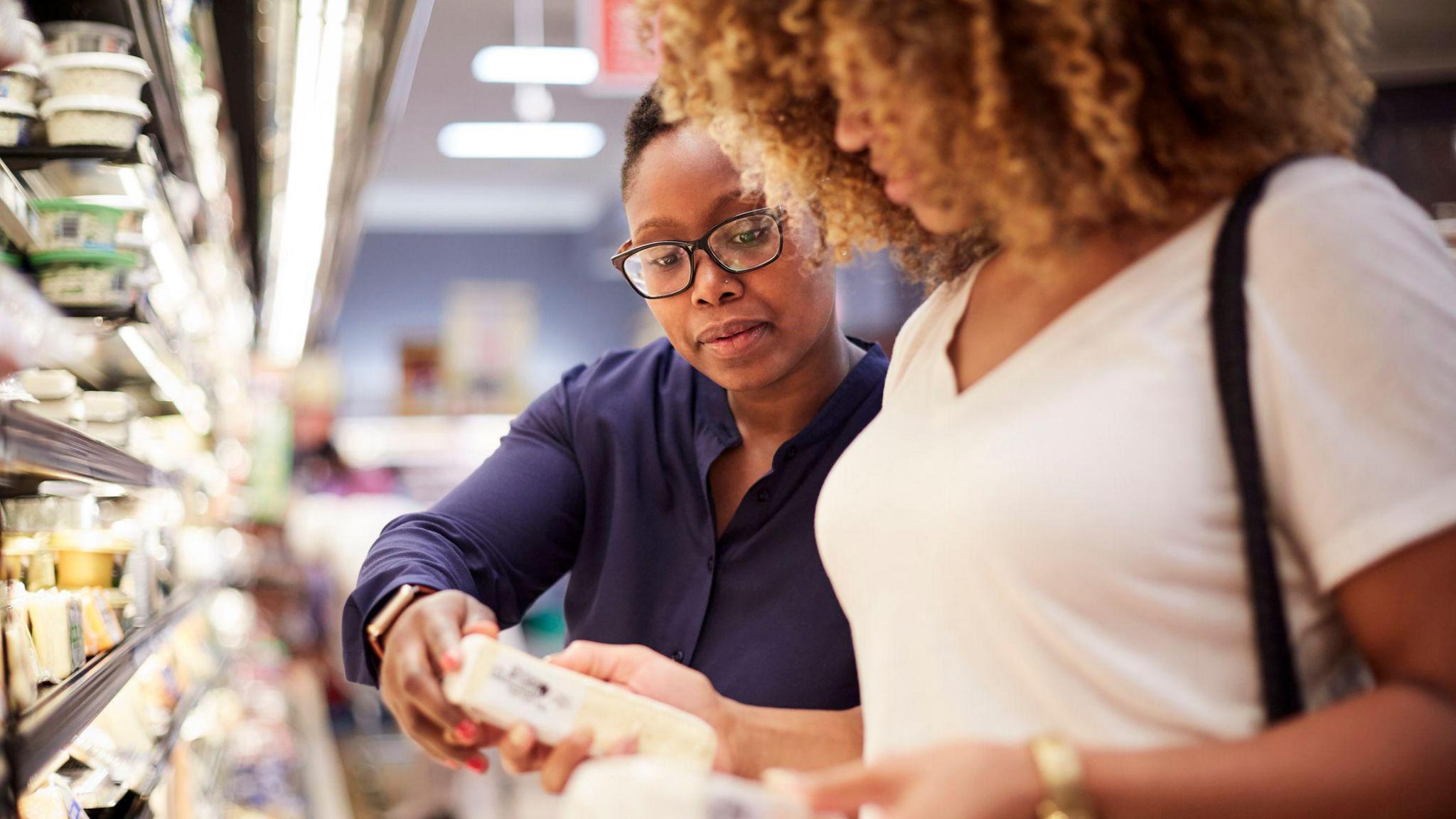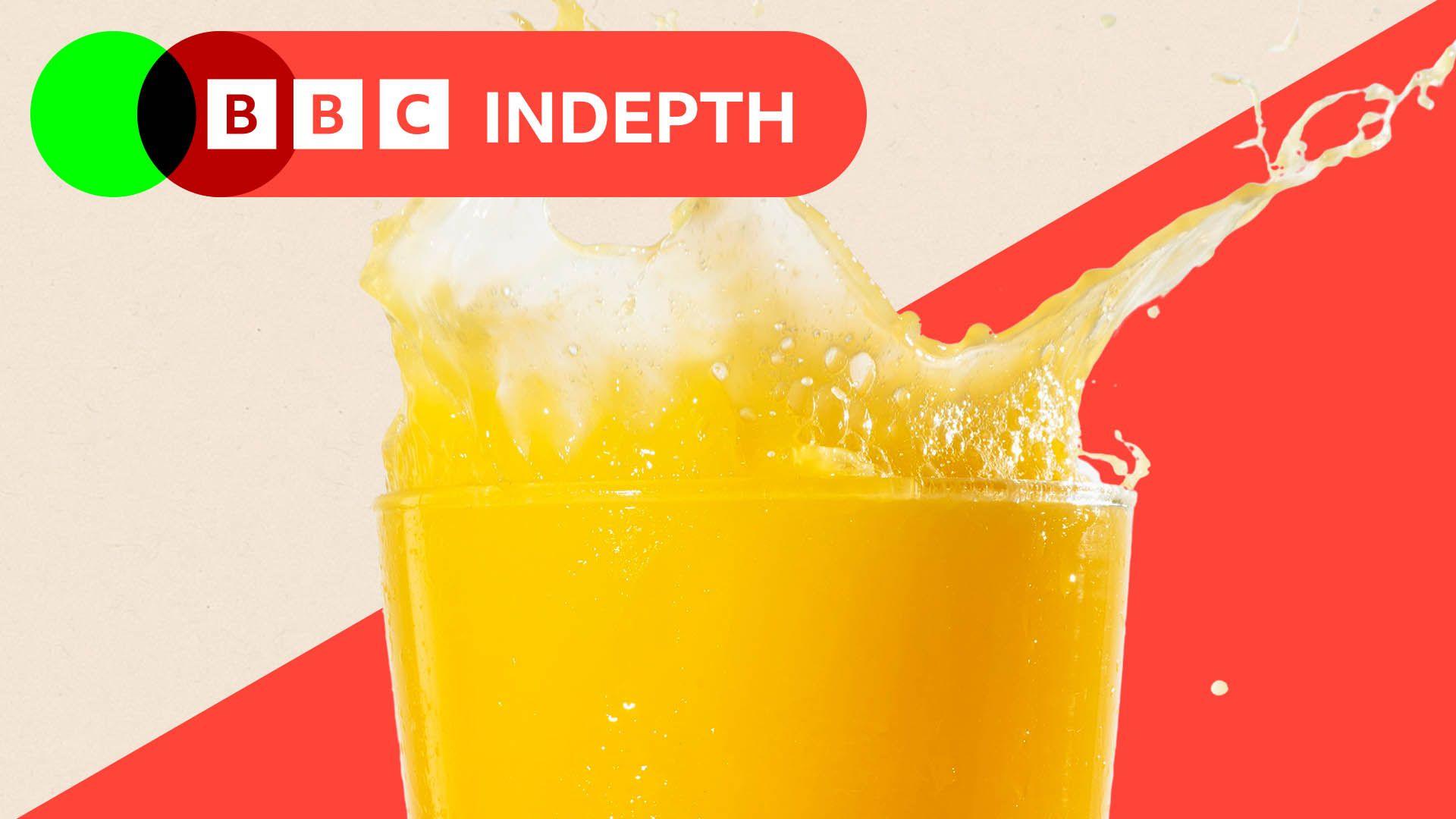Food price rises slow as UK inflation remains at 3.8%
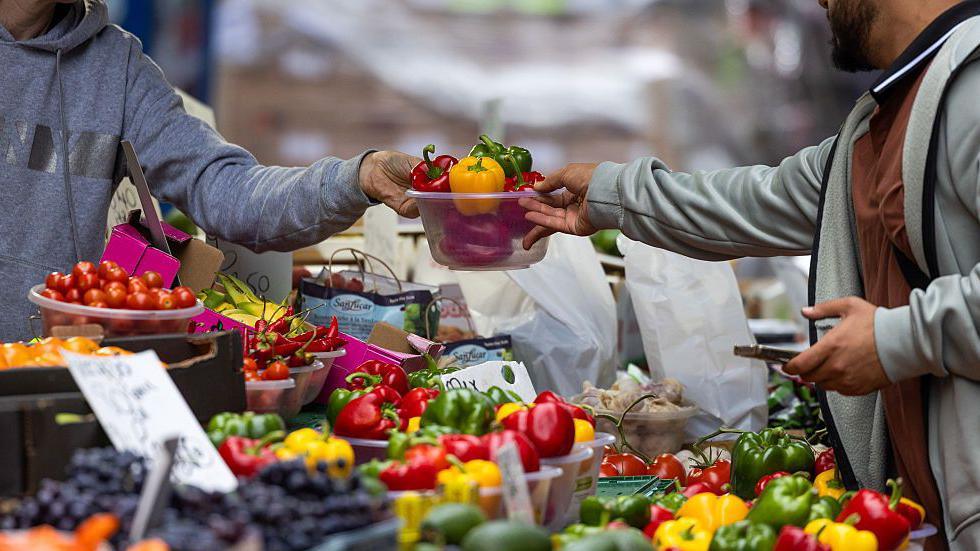
Food inflation fell, according to the latest figures
- Published
Food and drinks prices in the UK are increasing at their slowest rate in more than a year, while overall inflation remains unchanged for the third month in a row.
Month-on-month, the cost of food and non-alcoholic drinks actually edged down slightly in September - the first fall since May 2024. The ONS said this was likely to have been driven by increased sales and discounting by retailers.
The UK inflation rate for all items remained stable at a lower-than-expected 3.8% in the year to September, official figures show.
Chancellor Rachel Reeves said she was "not satisfied with the numbers" on inflation, while shadow chancellor Mel Stride said it was "pushing up the cost of living".
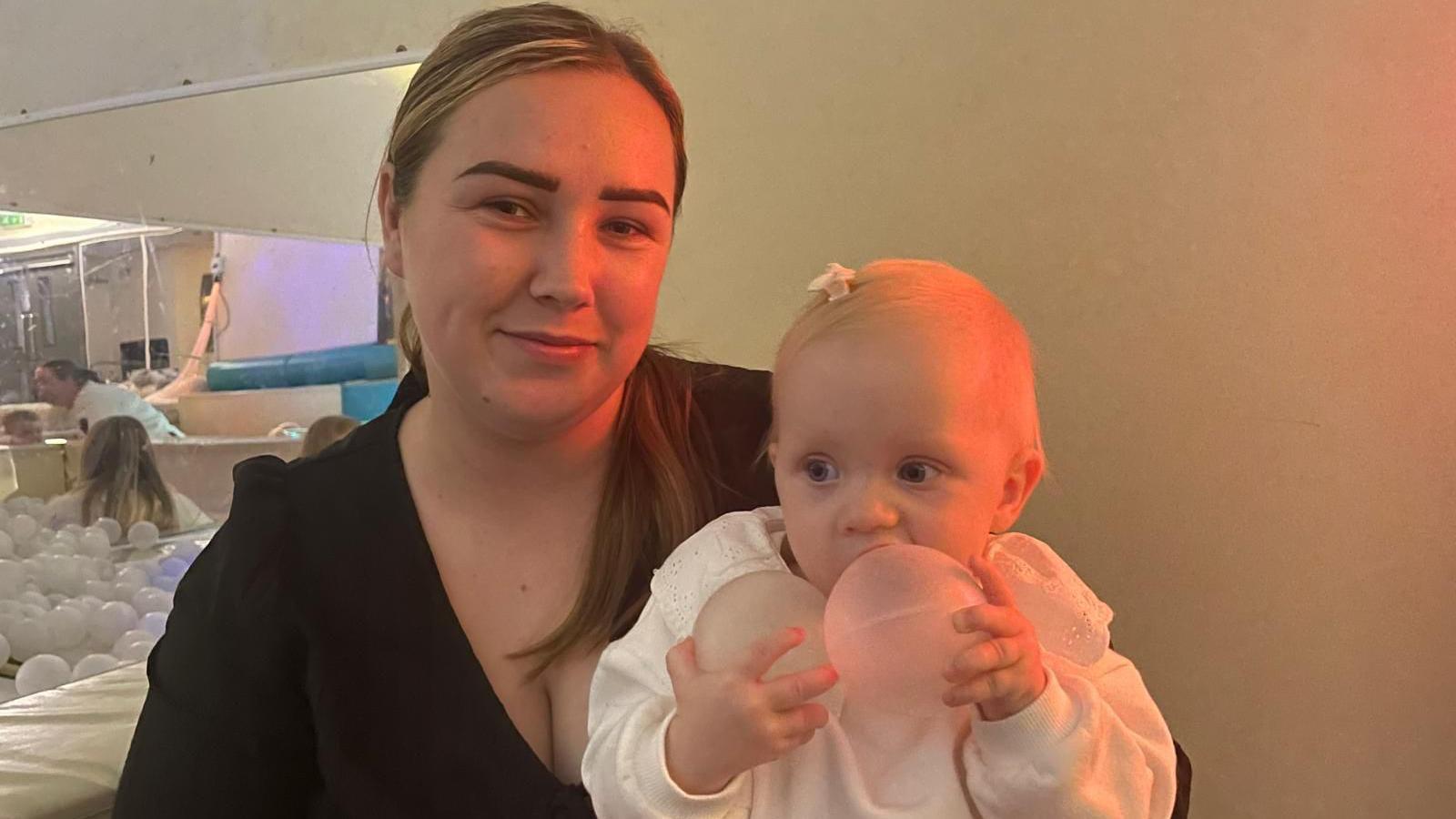
Kayleigh Brannan said she has noticed the price of meat going up
The inflation rate for food and non-alcoholic drinks was down to 4.5% for the year to September from 5.1% in the year to August.
This means the price shoppers pay for groceries and non-alcoholic drinks is still going up, just more slowly than before.
But between August and September this year, the cost of food and non-alcoholic drinks overall actually fell by 0.2% - the first fall for 16 months.
The drop was driven by slightly cheaper vegetables, milk, cheese and eggs, bread and cereals, fish, mineral waters, soft drinks and juices.
However, the cost of specific items such as red meat and chocolate continued to rise.
Kayleigh Brannan, a mother to baby Hadley, told the BBC she had noticed the price of meat rising in particular, and that now Hadley has started eating solid foods, she expected her expenses would be going up.
"It's not too bad at the moment but you can see the prices going up," she said.
She added: "The maternity pay is not enough. You've still got the same bills, you've still got to pay the mortgage… obviously you have more pressure then."
Britain's inflation rate was also 3.8% in July and August, according to the ONS, which is still much higher than the Bank of England's 2% target.
However, the central bank's economists had forecast inflation to rise to 4% in September.
ONS chief economist Grant Fitzner said: "The largest upward drivers came from petrol prices and airfares, where the fall in prices eased in comparison to last year."
He added: "These were offset by lower prices for a range of recreational and cultural purchases including live events."
Mr Fitzner told BBC Radio 4's Today programme that food prices were still "running quite high at 4.5%" but added "the fact that we have seen that steady increase dip a little is encouraging."
"It is just one month's numbers so we will have to see what transpires in future months - but nonetheless a small glimmer of hope there," he said.
Paul Dales, chief UK economist for Capital Economics, said while food price inflation could rise further, "this will probably be the peak in inflation".
James Walton, chief economist at the Institute of Grocery Distribution said the declining rate of food and drink inflation "aligns with our predictions that food inflation will start to moderate, and we may have seen the peak."
"Whilst this is good news, prices for shoppers are still going up year on year, just more slowly," he said.
Mr Walton noted that items such as red meat, coffee and chocolate are still seeing strong price increases and linked this to issues with production, such as bad weather.
Danni Hewson, AJ Bell head of financial analysis, said: "Staples like vegetables, milk, cheese and bread were all pared back a touch, though such tiny movements won't make a huge difference to the overall bill when people reach supermarket tills."
Dr Kris Hamer, director of insight at the British Retail Consortium, said the figures were "unlikely to raise consumer spirits as the cost of a weekly grocery shop was still "significantly higher than last year".
"Nonetheless, consumers will have been happy to see the price of key staples such as rice, bread and cereal fall on the month," he said.
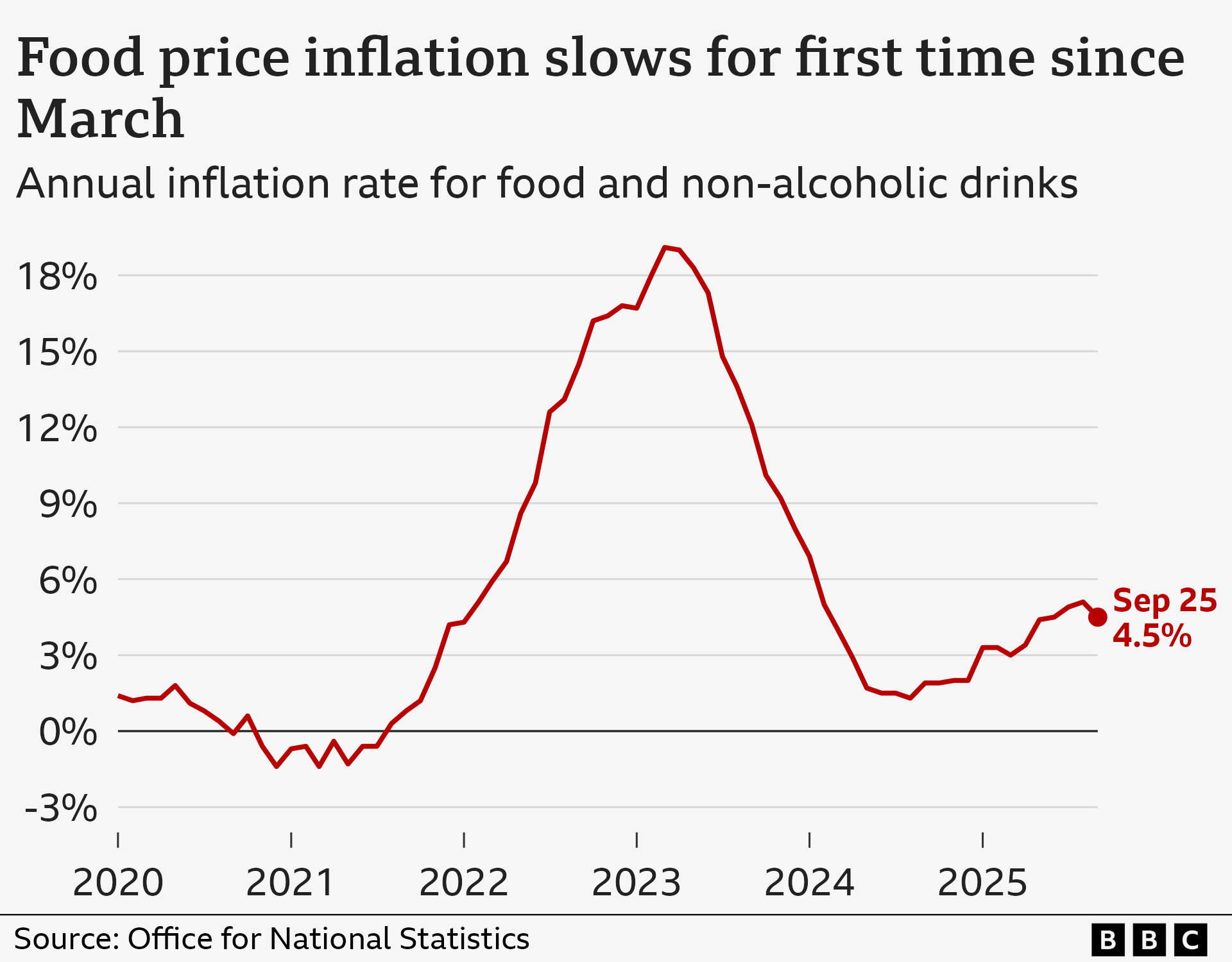
The chancellor said she was "not satisfied with these numbers."
"For too long, our economy has felt stuck, with people feeling like they are putting in more and getting less out," Reeves said.
She added that she was determined to ensure the government supports people "struggling with higher bills and the cost of living challenges, deliver economic growth and build an economy that works for, and rewards, working people."
In a post on X, the shadow chancellor said that inflation running at nearly double the Bank of England's target was "pushing up the cost of living and punishing those Labour promised to protect".
Stride claimed national insurance increases, government borrowing and not having "the backbone to reduce spending" were all contributing to inflation.
The overall inflation figure for September matters more than most other months.
That's because the government usually uses this as the benchmark for the benefits uprating in April.
It means millions of people depending on benefits are likely to see a 3.8% increase in their payments next year.
The state pension will rise by more, because the annual increase for that is determined by the so-called triple lock.
This guarantees that the state pension goes up each year in line with either inflation, wage increases or 2.5% - whichever is the highest. September's inflation figure of 3.8% is below average earnings for the relevant period (4.8%) which means the rise in wages will decide the state pension increase.
The inflation figures for the past three months were the joint-highest recorded since January 2024, when the rate was 4%, according to the ONS.
Inflation in the UK remains well below the 11.1% figure reached in October 2022, which was the highest rate for 40 years.
More to this story
- Published22 October
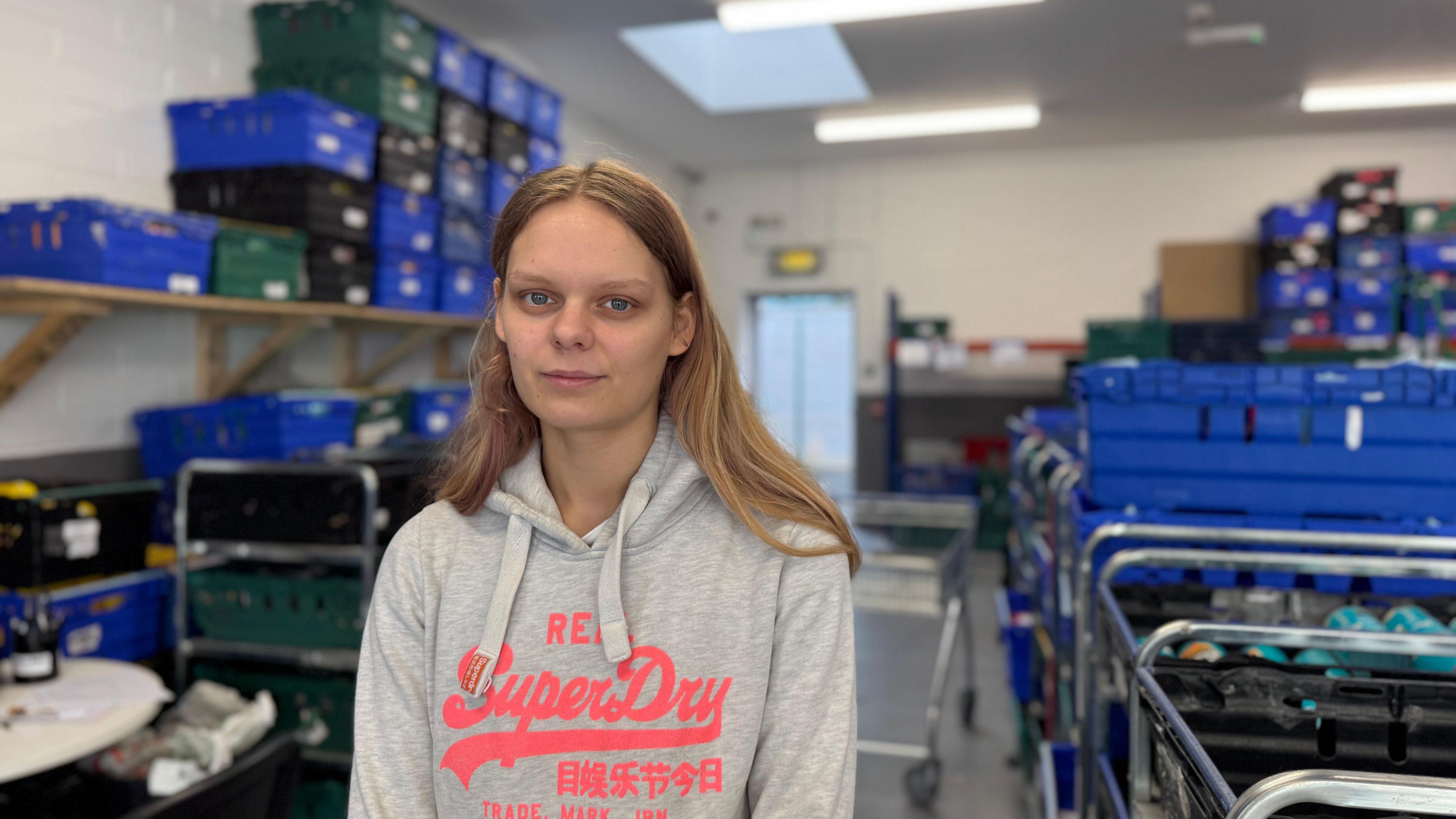
- Published6 hours ago
